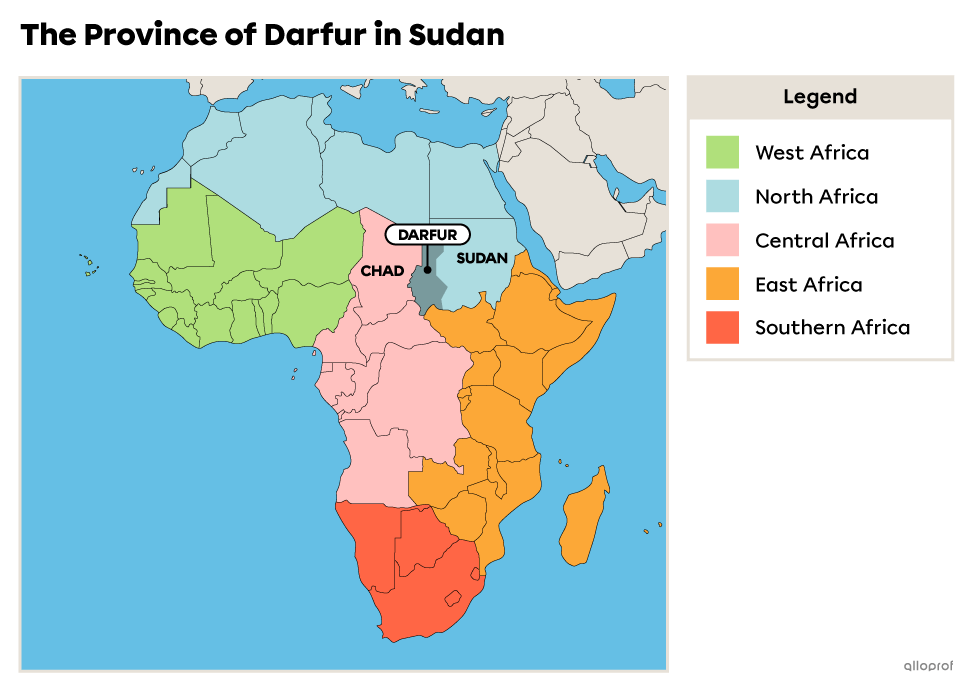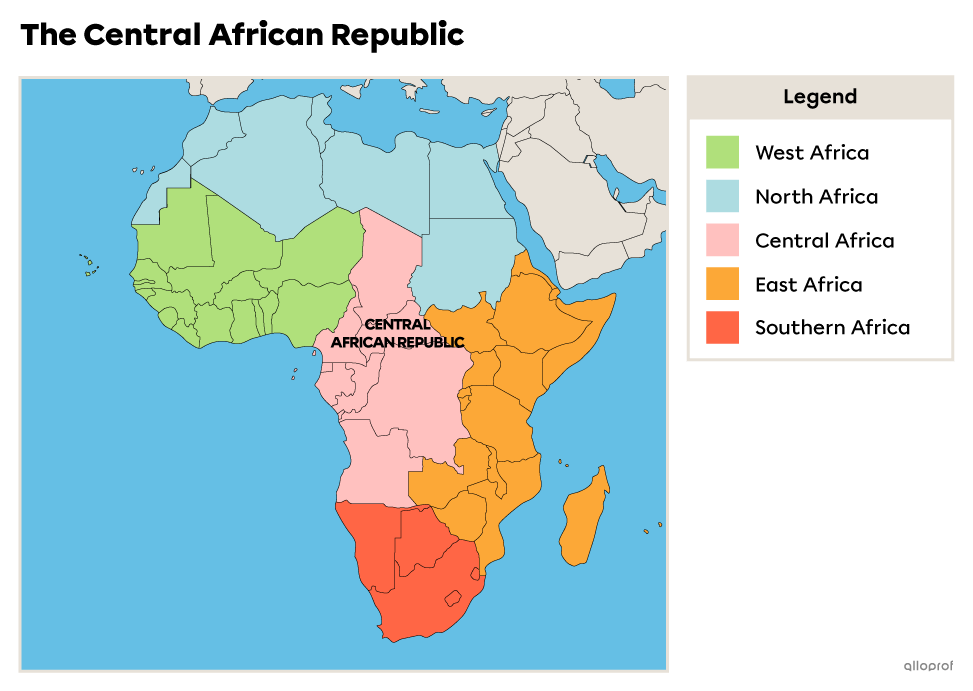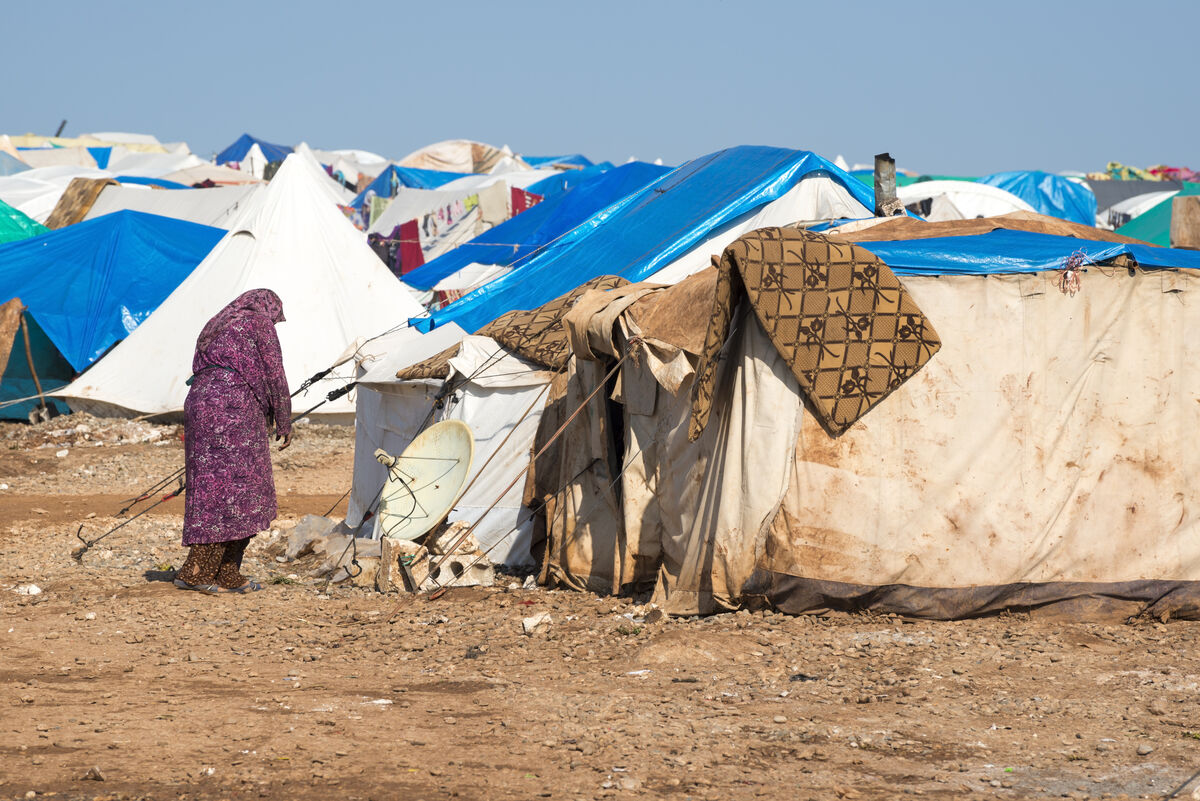In addition to causing death and violence, armed conflict also forces many people to flee their home countries in order to survive. Some people find refuge in neighbouring countries, while others move to countries far away.
By the end of 2018, more than 70 million people had to leave their homes due to war. Almost 30 million of these people are refugees and 3.5 million are stateless.
- A stateless person is a person who does not possess the nationality of any country. Because these people are deprived of their nationality, they are also deprived of many of their fundamental rights.
To better understand what a stateless person is, you can watch the video What Is a Stateless Person?.
- A refugee is a person who has been forced to leave their home country to escape a natural disaster, war or persecution that threatens their life and safety.
About 40% of displaced people settle in refugee camps, where they do not have access to education, health care and employment. In many of these camps, thousands of children, most of whom are orphans, can no longer go to school.
World War II resulted in a large wave of forced migration, which led the United Nations (UN) to take action to protect refugees and find them new homes. To achieve this, it created the International Refugee Organization (IRO), which was later replaced in 1951 by the Office of the United Nations High Commissioner for Refugees (UNHCR), which still exists today. Other waves of forced migration have occurred since the mid-1950s either due to war or natural disasters such as earthquakes or floods. This is why the UNHCR is still so active today.
The UNHCR is located in Geneva, Switzerland, and its main mandates include:
-
Protecting people forced to flee their countries due to war
-
Providing refugees with shelter, food, health care and more
-
Helping refugees return to their country, if possible, or helping them find a new home in another country
In general, the UNHCR ensures that the rights of refugees, as defined in the Geneva Convention, are respected. These rights are:
-
The right to safety (right to asylum)
-
Fundamental rights such as freedom of expression, freedom of movement and protection against torture and inhumane treatment
-
Economic and social rights such as access to health care, education and jobs
The UNHCR is also responsible for aiding both refugees and internally displaced people, such as:
-
Stateless persons (people whose nationality has not been recognized by the host country or cannot be proven)
-
Asylum seekers (people who have fled their country and are seeking protection in the country where they are taking refuge)
-
Internally displaced people (people who have moved elsewhere within their own country to escape conflict)
-
Returnees (people who were in a foreign country and had to return to their own country for security reasons)
-
The Geneva Conventions were adopted in 1949 and set out the rules of international humanitarian law. These treaties protect, among other things, the rights of civilians, wounded soldiers and prisoners of war.
-
The right to asylum provides protection in a host country to a person whose life is threatened in their own country. This person must request this protection.
To achieve all of its mandates and help as many people as possible, the UNHCR works with several partners, including:
-
Non-governmental organizations (NGO) such as UNICEF (the United Nations Children’s Fund) or WFP (the United Nations World Food Programme)
-
Private sector companies, such as entrepreneur Jim Estill, president of Danby Appliances located in Ontario, who has been sponsoring refugees in collaboration with over 800 community volunteers since 2015. He provides newcomers with language training and assistance in acquiring skills needed to enter the job market.
-
Government institutions
- An institution is an organization governed by rules and laws that plays a specific role in society. Its role may be political, social, economic, religious, etc.
To better understand what an institution is, you can watch the video What is… an institution?.
- A non-governmental organization (NGO) is a non-profit organization made up of citizens who defend a cause and act independently from the government.
The UN Refugee Agency has won the Nobel Peace Prize twice, in 1954 and 1981.
Since 1976, Canada has played a very important role in hosting refugees and finding them new homes. The UNHCR agencies, based in Ottawa, Montreal and Toronto, have four specific but interrelated mandates:
-
Protection: ensure that refugees are properly identified to welcome them
-
Rehoming: help refugees rebuild good lives in Canada
-
Awareness: ensure that Canadians are properly informed and educated about the issues experienced by refugees
-
Fundraising: ensure that the necessary funding is received from the Canadian government and private sources to adequately accommodate refugees
In 2018, Canada was the country with the highest number of refugees, with 30 000 (twice as many as in 2009). Most of these refugees came from Syria, where a civil war that started in 2011 has forced nearly 7 million people to flee their homes.

The situation in Darfur in western Sudan prompted the UN Refugee Agency to take several actions to find shelter for refugees near the Chad border. The war began in February 2003 and was fought between two distinct ethnic groups (Arabs and Black Africans) over the distribution of resources and wealth. Several hundred thousand people died in this war and more than two million people were forced to flee the country.
In January 2004, the UNHCR set up the first refugee camp near the Chad border. Several other camps have been established since 2004, where the UNHCR provides water, food, medical services and temporary shelter. However, as the number of refugees seeking shelter keeps increasing, the UN Refugee Agency needs help from other humanitarian organizations (including the Red Cross) to meet the basic needs of displaced people. The situation in Darfur is still not resolved.
To find out more about the war in Darfur, read the following report by France 24: Exclusive report: Investigating massacres in Sudan's war-torn Darfur region

In December 2013, a civil war broke out in the Central African Republic following numerous conflicts related to political and religious issues. Tensions had been high throughout the country for a very long time due to political instability, the presence of several armed militias and multiple coups. As a result, insecurity, malnutrition and extreme poverty have forced more than a million people to leave their homes and seek refuge in safer areas.
Some have moved within the country, while others (more than 593 000) have fled to neighbouring countries such as Cameroon, Chad, the Democratic Republic of the Congo and The Republic of the Congo. UNHCR tries to help these people who are often malnourished and traumatized by the violence they have seen and/or experienced by providing:
-
food
-
water
-
medical care and sanitation
-
shelter
Since the start of the COVID-19 pandemic, humanitarian aid provided by NGOs in sub-Saharan Africa, including the Central African Republic, has been significantly reduced. This is because many people can no longer receive care due to closed borders. The following article summarizes the issues related to the global outbreak of COVID-19, which has disrupted the work of humanitarian operators: Coronavirus pandemic hits aid work, funding across sub-Saharan Africa
To find out more about the UNHCR’s mandates, visit the following page: Emergencies
Ladouceur, Maude and collabs. Globe, 2014, pp. 211.
